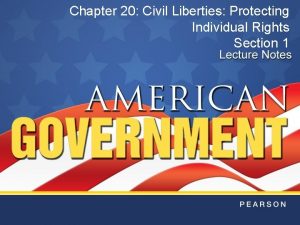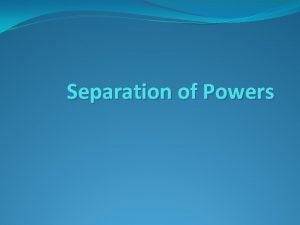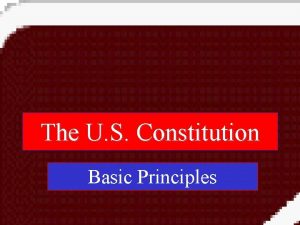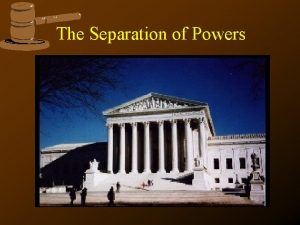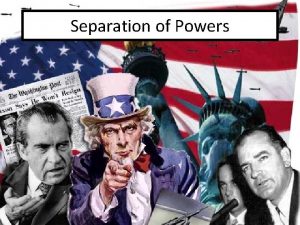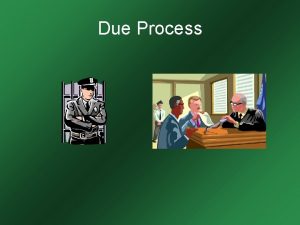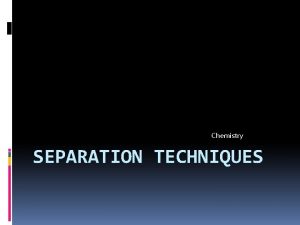Lack of Separation of Powers Due Process Rule








- Slides: 8

Lack of Separation of Powers & Due Process; Rule of Law, Noncompliant Criminal Trials & Cruel and Inhuman Punishment Danielle Gallagher LLB, @renaissance_fem Ph. D Researcher, Transitional Justice Institute, Ulster University

“In early accounts, such as Montesquieu’s The Spirit of the Laws, the separation of powers is intended to guard against tyranny and preserve liberty. It was held that the major institutions should be divided and dependent upon each other so that one power would not be able to exceed that of the other two. Today, the separation of powers is more often suggested as a way to foster a system of checks and balances necessary for good government. ” - House of Commons Library, Standard Note SN/PC/06053

Bingham’s Eight Principles of the Rule of Law 1. The law must be accessible and so far as possible intelligible, clear and predictable. 2. Questions of legal right and liability should ordinarily be resolved by application of the law and not the exercise of discretion. 3. The laws of the land should apply equally to all, save to the extent that objective differences justify differentiation. 4. Ministers and public officers at all levels must exercise the powers conferred on them in good faith, fairly, for the purpose for which the powers were conferred, without exceeding the limits of such powers and not unreasonably. 5. The law must afford adequate protection of fundamental human rights. 6. (refers to the resolving of civil disputes) 7. Adjudicative procedures provided by the state should be fair. 8. The rule of law requires compliance by the state with its obligations in international law as in national law.


Article 5 – UDHR (Art 7 ICCPR) “No one shall be subjected to torture or to cruel, inhuman or degrading treatment or punishment. ” - Non-Derogable Article 9 – ICCPR Everyone has the right to liberty and security of person. No one shall be subjected to arbitrary arrest or detention. No one shall be deprived of his liberty except on such grounds and in accordance with such procedure as are established by law. (5) Anyone who has been the victim of unlawful arrest or detention shall have an enforceable right to compensation. Article 10 - ICCPR All persons deprived of their liberty shall be treated with humanity and with respect for the inherent dignity of the human person.



 Substantive vs procedural due process
Substantive vs procedural due process Theory of separation of powers
Theory of separation of powers Separation of powers and checks and balances
Separation of powers and checks and balances New haven connecticut
New haven connecticut How did the constitution guard against tyranny
How did the constitution guard against tyranny Separation of powers drawing
Separation of powers drawing Whats separation of powers
Whats separation of powers Why did montesquieu advocate the separation of powers?
Why did montesquieu advocate the separation of powers? Separation of powers
Separation of powers
